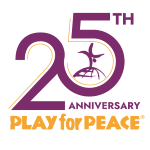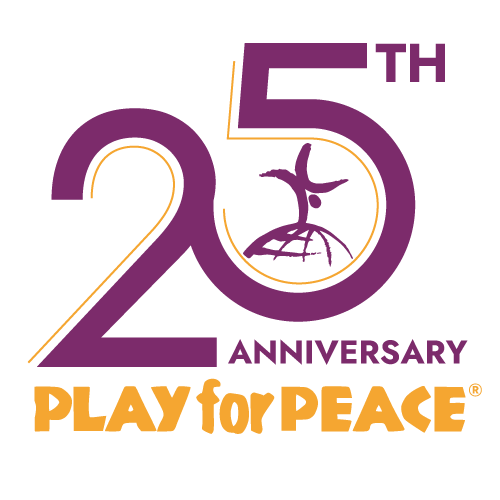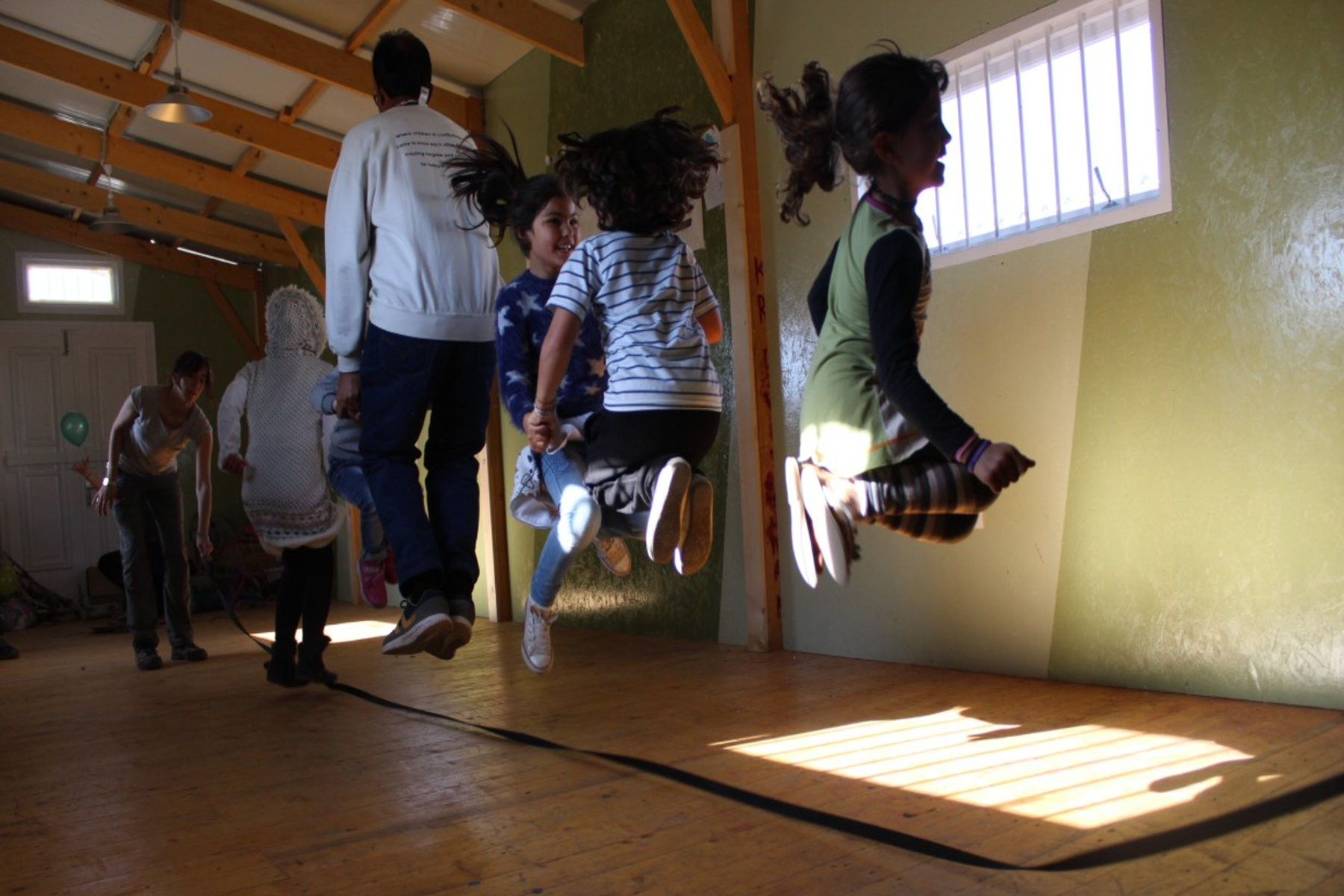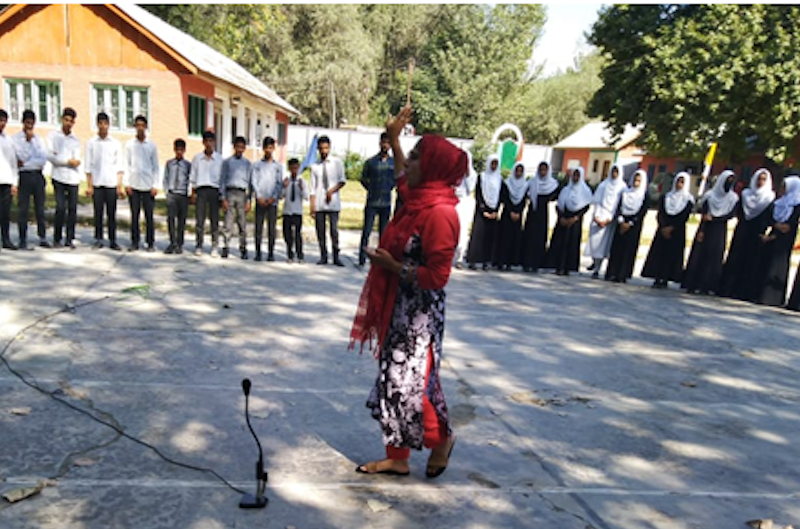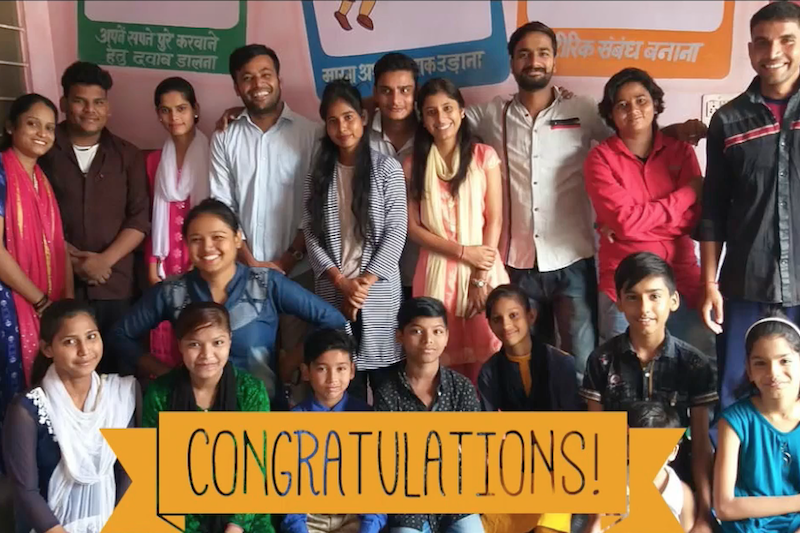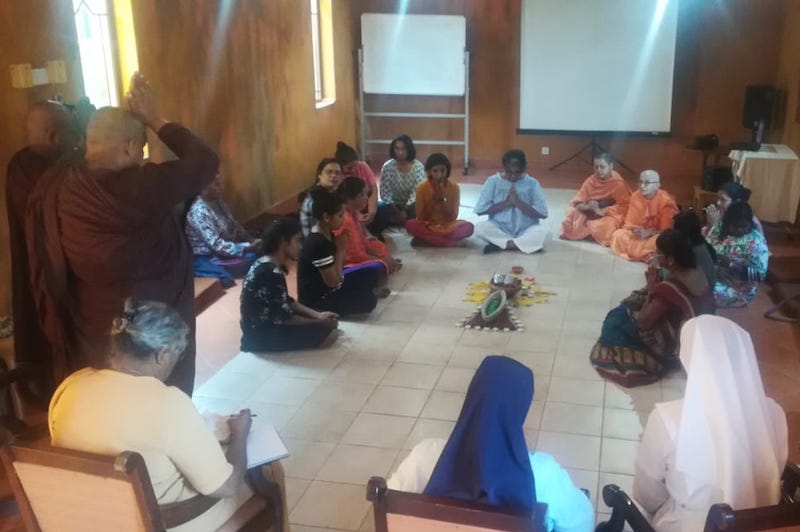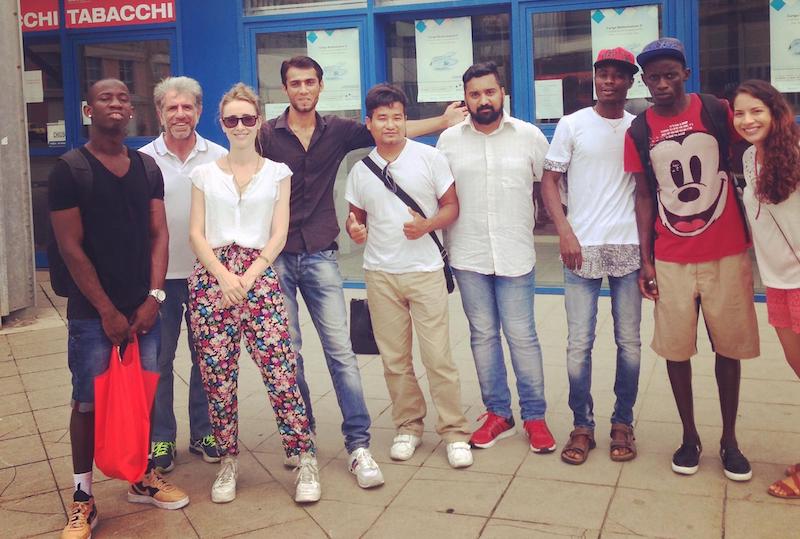reposted with permission from Agyatmitra
Play for Peace(R) is a process of creating inclusive experiences using cooperative activities with care and fun. When young people experience Play for Peace consistently it helps them grow. In 20 years of sharing Play for Peace with young people we have seen young people transform their life, individually and collectively.
As Social & Emotional Learning (SEL) becomes the focus of many a conversations happening to build children's agency, enable them with life skills, we have started coming across questions that ask, 'Do you do anything around SEL?'
The answer is; Well! Yes! Play for Peace offers a SEL experience and has been doing it since last 2+decades.
Sample this – In September of 2000, Play for Peace in its first partnership in India in the old city of Hyderabad trained a group of adolescents as youth facilitators (around 16 years age). Many of these young people were school 'drop outs'. As they started facilitating sessions and children started looking up to them as role models, the facilitators became aware of their strength, their worth and also started feeling responsible for what they were doing. Never did we ask them why don't you join school or continue your study. It was their decision and many went and completed their graduation from open university.
Lets understand what and how of correlation between Play for Peace process and SEL
Social and Emotional Learning (SEL) enhances student's capacity to integrate skills, attitudes and behaviors [tools] to [help them] deal effectively and ethically with daily tasks and challenges.(CASEL.org)
Core Competencies
Self-Awareness - The ability to accurately recognize one's own emotions, thoughts, and values and how they influence behavior [one's own behaviors]. The ability to accurately assess one's strengths and limitations, with a well-grounded sense of confidence, optimism and a growth mindset.
Self-Management - The ability to successfully regulate one's emotions, thoughts and behaviors in different situations - effectively managing stress, controlling impulses [responding versus reacting], and motivating oneself [where is the locus of control?]. The ability to set and work toward personal and academic goals.
Active Social Emotional Learning
Social Awareness - The ability to take the perspective of and empathize with others, including those from diverse [different] backgrounds and cultures. The ability to understand social and ethical norms for behavior and to recognize family, school and community resources and support.
Relationship Skills - The ability to establish and maintain healthy and rewarding relationships with diverse individuals and groups. The ability to communicate clearly, listen well, cooperate with others, resist inappropriate social pressure, negotiate conflict constructively, and seek and offer help when needed.
Responsible Decision-Making - The ability to make constructive choices about personal behaviors and social interactions based on ethical standards, safety concerns, and social norms. The realistic evaluation of consequences of various actions and a consideration of the well-being of oneself and others. (Chris Cavert)
Play for Peace Experience (process) – A typical Play for Peace session, called a Practice Peace Session involves a series of sequenced activities. The activities are non-competitive and challenging at the same time. One has to be paying attention all the time and if you don't, you don't get punished, it heightens your awareness. It takes some time to overcome your conditioning that equates mistakes to failure, exclusion. Ones children realize it, they are in better position to deal with fear. Soon enough they see how they belong in the group as everyone has similar experience of making mistakes, doing well, despair, joy. With time there is also a realization that mistakes are an opportunity to change and act differently, that no one is infallible. When you see diverse group of people experiencing, reacting, responding to challenge, difficulties, success, having similar emotions of joy, panic, elation, laughter, fear etc., you develop empathy for others as well as for your own self. It also connects people at emotional level and lays foundation for relationship to prosper.
Here are some stories of our experience of doing Play for Peace that would put in perspective the connection between Play for Peace experience and SEL.
Once in a corporate team building program in outdoors of three days, the first experience participants had was a Play for Peace session with a name game. At the end of the three days when they were giving feedback, many of them recalled the experience of Play for Peace session saying that it helped them connect with each other in a way that they could never do at work place (“I even found out 1st name of some of my collogues today”). It helped them work together in the program. (Self Awareness, Social Awareness, Relationship Skills)
On more than one occasion participants of Play for Peace training (to work as facilitator with children) have shares stories of deep transformation in children as an outcome of consistently experiencing Practice Peace Sessions. Babya, a boy in Jamkhed, Sholapur, who was labeled as 'dumb & mentally retarded' joined the children in singing a action song 'Hathi Ka Baccha', First time anyone in the village heard him speak. (Self Management, Social Awareness).
In IDP camps(internally displaced people) in post-communal violence Ahmedabad, Gujarat (2002) or post-Tsunami Port Blair, Andaman Islands(2005-06), organizations on ground recruited young people to run activity center for children as schools were not accessible. Young people having no formal experience of working with groups of children would resort to force, violence (verbal, physical) to control children. That is their reference of how to work with children(self experienced). After Play for Peace was introduced it completely changed the way the activity centers were run.
Very similar to para teachers, animators, volunteers, NGO workers, sharing how learning Play for Peace changes their context of how to manage children, thereby impacting their attitude and behavior. This is the experience of more than two decades of working with diverse population socially and geographically while partnering with INGO's, NGO's , CBO's in India and outside. (Self Awareness, Self Management, Social Awareness, Relationship Skills, Responsible Decision Making).
Please look at this video; a three day workshop of Play for Peace in an IDP camp in Awerial, South Sudan. The group consisted of people ranging from 10-12 year old to probably 45 years age. People who had suffered violence, loss of home and agency and where completely dependent on INGO's. At the start of the workshop participants were barely responding. Thanks to young people present, who understand the language of play better than adults (who need to unlearn first) play happened. As you will see in the video, young people started facilitating and helping adults to do some activities.
What do you think was the emotional experience? What happened to their cognition? Do you notice smile, do you see people enjoying themselves, getting into the groove? As a group how did they experience each other? Would they be appreciative of the experience?
Finally, Re-look at this definition of SEL; “Social and Emotional Learning (SEL) enhances student's capacity to integrate skills, attitudes and behaviors [tools] to [help them] deal effectively and ethically with daily tasks and challenges.” and the core competencies of SEL;
- Self Awareness
- Self Management
- Social Awareness
- Relationship Skills
- Responsible Decision Making
Do you see how an inclusive, fun experience that challenges participants to stay on top of their game without any fear of loosing out can help one grow emotionally?
' ...and the girl you see (in the video) with one foot lost in the violence, wanted to play the running game, 'tom & jerry'. The group came up with the idea that when its her turn her counterpart will use only one leg!'
Author: Play for Peace Master Trainer, Agyatmitra
